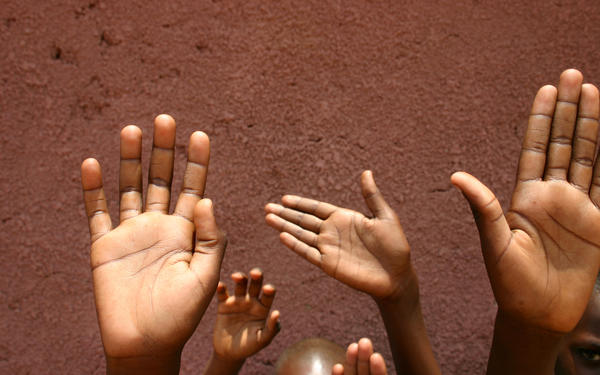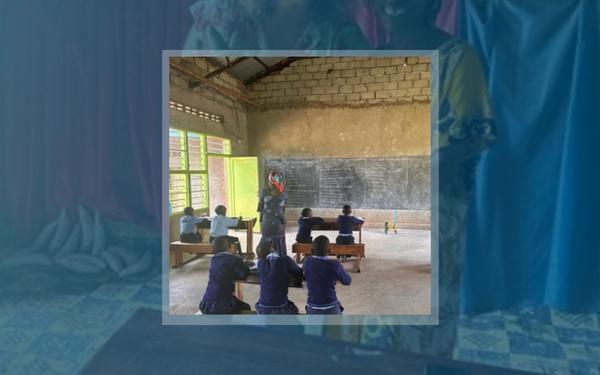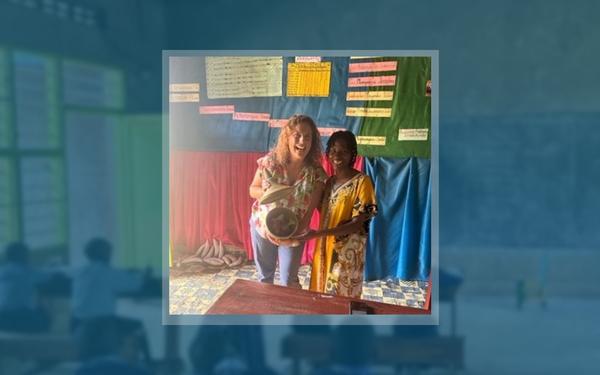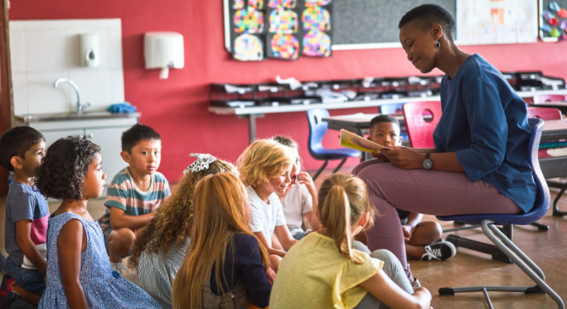Play and learning: a partnership to deliver teacher training in Rwanda
Cambridge Partnership for Education is part of a team developing training to help primary teachers in Rwanda to provide more collaborative and playful learning, in support of the country’s competency based curriculum. Eleanor Sykes, an educational consultant, shares progress after a recent trip to the country.

Enthusiastic singing, clapping and dancing games - and lots of playful, active learning opportunities. I’ve been to many workshops and meetings to collaborate in education reform in Africa and beyond, and this was certainly not your usual session.
I was in Rwanda as part of a team representing Cambridge Partnership for Education, the dedicated unit in Cambridge that works with governments on educational reform. We were taking part in a five-day workshop, along with both government and non-governmental partners – and, yes, they were playing along too.
But we were all together in Musanze, a city in the foothills of the Virunga Massif, some two hours outside of Rwanda’s capital Kigali, with a rather more serious purpose: to help develop training for lower primary teachers in the country to facilitate more collaborative, engaging and playful learning.
The session was run by Right to Play, which strives to protect, educate and empower children to rise above adversity through the power of play. And, of course, our partners at the Rwanda Ministry of Education, Basic Education Board, University of Rwanda-College of Education - which will accredit the training - and the National Examination and School Inspection Authority (NESA).

So, why play? Playful learning encourages children to work more collaboratively and engage actively in their learning. The clapping, singing and dancing games that I previously mentioned demonstrated how classrooms can be energetic environments, and how learning can be delivered in many ways to be both motivating and meaningful, resulting in long-lasting impact.
Play in teaching and learning is something that the University of Cambridge supports and researches. The university has its own unit, Play in Education, Development & Learning (PEDAL), which is dedicated to understanding the role of play to help to improve children's lives and the opportunities available to them. Colleagues from PEDAL were with us in Musanze, as were representatives from the Lego Foundation, which backs PEDAL.
The focus now in Rwanda is to help our partners support primary teachers in grades P1 to P3 - with children aged seven to nine - to deliver playful lessons that engage children through active learning. As a former early years’ teacher myself, it’s a concept I’m very familiar with.

The aim is to deliver the training to up to 3,343 lower primary teachers in more than 300 public and government aided schools in seven districts in Rwanda – Burera, Muhanga, Musanza, Ngoma, Ngororero, Nyanza, and Rwamagana.
Crucially, teachers have been very closely involved throughout the course design; it is being designed with teachers, for teachers. It was their feedback – alongside consultation with education partners in Rwanda – that led to the decision to create training that combines online learning with face-to-face workshops. This blended learning model offers the most effective approach to ensure provision of high-quality learning online materials with plenty of opportunity for collaborative learning through regular coaching and in-person training sessions.
Now, having consulted with teachers to discuss their needs and to establish the training delivery model, the next step is to pilot the training with 30 lower primary teachers.
After all, like us at the workshop, teachers will soon be the ones planning meaningful, engaging and playful activities as they bring an exciting new way of learning to life in classrooms across Rwanda.
If you want to find out more about our services, or how we can help, please do get in touch.


